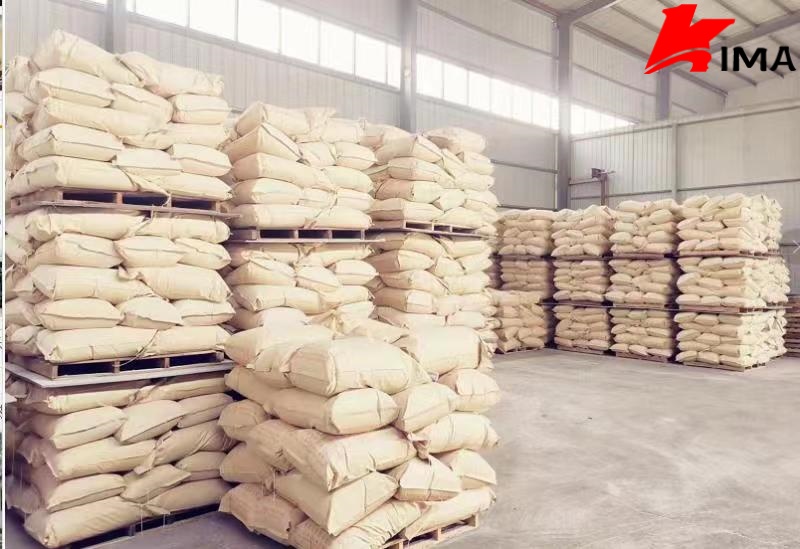What is CMC gum?
What is CMC gum?
Carboxymethyl cellulose (CMC), also known as cellulose gum, is a versatile and widely used additive in various industries, including food, pharmaceuticals, personal care, and industrial applications. It is derived from cellulose, a natural polymer found in plants, through a chemical modification process. CMC is valued for its unique properties, which include thickening, stabilizing, and film-forming capabilities.
Chemical Structure and Properties:
CMC is synthesized by reacting cellulose with chloroacetic acid and sodium hydroxide. This chemical modification results in the introduction of carboxymethyl groups (-CH2-COOH) onto the cellulose backbone. The degree of substitution (DS), which indicates the average number of carboxymethyl groups per glucose unit, determines the properties of the CMC product.
CMC is available in various grades based on its viscosity, degree of substitution, and particle size. Higher DS grades exhibit greater solubility and thickening capacity, while lower DS grades offer better compatibility with organic solvents and improved film-forming properties.
Applications:
- Food Industry: CMC is commonly used in the food industry as a thickener, stabilizer, and emulsifier in a wide range of products. It improves texture, viscosity, and mouthfeel in food formulations such as sauces, dressings, dairy products, baked goods, and beverages. CMC also prevents ice crystal formation in frozen desserts and enhances the shelf stability of processed foods.
- Pharmaceuticals: In pharmaceutical formulations, CMC serves as a binder, disintegrant, and viscosity modifier in tablets, capsules, suspensions, and ointments. It facilitates tablet compression, promotes drug dissolution, and provides uniformity in dosage forms. CMC-based suspensions offer improved stability and ease of reconstitution for oral medications.
- Personal Care Products: CMC is found in various personal care and cosmetic products, including toothpaste, shampoo, lotion, and cream formulations. It functions as a thickener, suspending agent, and moisture-retaining agent, enhancing product texture, stability, and performance. In toothpaste, CMC improves consistency and ensures uniform distribution of active ingredients.
- Industrial Applications: CMC is utilized in numerous industrial applications, such as detergents, textiles, paper manufacturing, and oil drilling. In detergents, CMC acts as a soil suspending agent and viscosity builder, improving cleaning efficiency and preventing redeposition of soil onto surfaces. In textiles, CMC is applied as a sizing agent and thickener to enhance fabric strength and printability.
- Oil and Gas Industry: CMC is used in drilling fluids as a viscosifier and fluid loss control agent. It helps maintain viscosity and stability in drilling muds, reducing friction and improving lubrication during drilling operations. CMC also prevents fluid loss into permeable formations, enhancing wellbore integrity and productivity.
Key Properties and Benefits:
- Thickening: CMC exhibits excellent thickening properties, forming viscous solutions at low concentrations. It improves the texture and consistency of products, enhancing their sensory attributes and performance.
- Stabilization: CMC acts as a stabilizer, preventing phase separation and maintaining the uniform distribution of ingredients in formulations. It enhances product shelf life and prevents syneresis in gels and emulsions.
- Water Solubility: CMC is highly soluble in water, forming clear, transparent solutions. Its rapid hydration and dispersibility make it easy to incorporate into aqueous formulations, providing uniform viscosity and texture.
- Film-Forming: CMC can form flexible and cohesive films when dried, providing barrier properties and moisture retention. It is used in coatings, adhesives, and edible films to improve strength, adhesion, and film integrity.
- Biocompatibility: CMC is generally recognized as safe (GRAS) by regulatory authorities and is widely used in food, pharmaceutical, and personal care products. It is non-toxic, non-irritating, and biodegradable, making it suitable for various applications.
Regulatory Considerations:
CMC is regulated by food and drug authorities worldwide, including the United States Food and Drug Administration (FDA), the European Food Safety Authority (EFSA), and the Joint FAO/WHO Expert Committee on Food Additives (JECFA). It is approved for use as a food additive, pharmaceutical excipient, and cosmetic ingredient within specified limits.
Regulatory agencies establish purity criteria, maximum usage levels, and specifications for CMC products to ensure their safety and quality. Compliance with these regulations is essential for manufacturers to market CMC-containing products legally.
Challenges and Limitations:
While CMC offers numerous benefits, it also presents certain challenges and limitations:
- pH Sensitivity: CMC may undergo pH-dependent solubility and viscosity changes, affecting its performance in different formulations. Adjustments in pH may be required to optimize its functionality in specific applications.
- Shear Sensitivity: CMC solutions are shear-thinning, meaning their viscosity decreases under shear stress. This rheological behavior should be considered during processing and handling to achieve desired product consistency.
- Compatibility Issues: CMC may interact with certain ingredients or additives in formulations, leading to undesirable effects such as reduced viscosity or instability. Compatibility testing is necessary to ensure compatibility and optimize formulation performance.
- Hygroscopic Nature: CMC has hygroscopic properties, absorbing moisture from the environment. This can affect the stability and flow properties of powdered formulations and may require appropriate packaging and storage conditions.
Future Perspectives:
As industries continue to prioritize sustainability, safety, and performance, the demand for CMC is expected to grow. Ongoing research aims to develop modified CMC derivatives with enhanced properties for specific applications, as well as eco-friendly production methods to reduce environmental impact.
Advancements in formulation technology and processing techniques may further expand the utility and versatility of CMC in various industries. Additionally, regulatory agencies will continue to monitor and evaluate the safety and efficacy of CMC-containing products to ensure consumer protection and compliance with regulatory standards.

carboxymethyl cellulose (CMC) is a valuable additive with diverse applications across multiple industries. Its unique properties, including thickening, stabilizing, and film-forming capabilities, make it indispensable in food, pharmaceutical, personal care, and industrial formulations. Despite challenges and limitations, ongoing research and innovation promise to drive further advancements in CMC technology, meeting the evolving needs of consumers and industries worldwide.